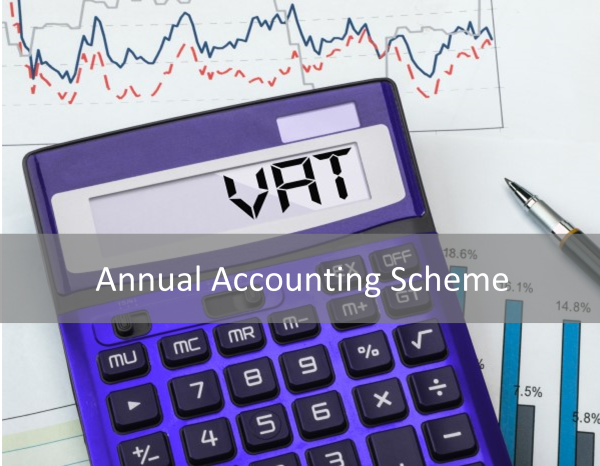
There are several VAT schemes aimed at smaller businesses that help to simplify reporting, and in turn reduce the amount of administration time spent on compliance. One is the annual accounting scheme (AAS). Here we look at what this is and the benefits it may bring to your business.
Overview of the AAS
Under the AAS, HMRC permits a business to make one VAT return for a year-long period, instead of the usual four quarterly returns. The business makes advance payments toward the VAT liability for the year, and then reconciles any difference on the annual return. For this reason, a business that usually receives a repayment of VAT (i.e. the input tax exceeds the output tax) won't benefit, as there will be a delay in receiving the repayment.
Eligibility
A business can join if:
- it's a VAT-registered business the estimated VAT taxable turnover is £1.35 million or less in the next 12 months.
- However, there are some exceptions. A business that meets these conditions can't join the AAS if:
- it left the scheme in the last 12 months
- the business is part of a VAT registered division or group of companies
- it's not up to date with VAT Returns or payments
- it's insolvent.
To join the scheme, the business must complete form VAT600AA, which can be done online. HMRC will confirm a successful application and specify the 12-month VAT period. The annual return is due two months after the end of that period.
Payments are based on the VAT liability for the previous 12 months (or estimated liability where the business is new to VAT) and are payable either monthly (nine per period) or quarterly (3 per period). The final payment is due within two months of the end of the period. If too much VAT has been paid a refund will be issued.
Advantages
The main advantage is the requirement to file a single return in a 12-month period rather than four. It also makes budgeting easier, as the payments are known in advance. The scheme is particularly useful for seasonal businesses, as it provides a means of "spreading" the VAT payments over the whole year, which can help cash flow.
Disadvantages
Where large purchases are made, the delay in being able to reclaim the input tax can present liquidity problems. This will be particularly true for purchases made in the early part of the 12-month period. Additionally, the payments may be excessive, e.g. if the business knows that taxable turnover has decreased. However, it is possible to request changes to the amounts due.
A further disadvantage may arise if the business doesn't keep up to date with its record-keeping. If the VAT liability increases significantly, but the business owner doesn't notice until the end of the period, a large increase in payments may come as a surprise - though of course this is a problem due to record-keeping, not with the scheme itself.
On balance, we’ve found that smaller businesses have benefited from the AAS, particularly if they are in a service industry. If you are unsure or would like any help, please drop me a line at paul.newbold@torgersens.com.

.jpg)
.jpg)

.jpg)



